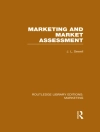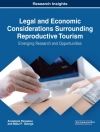The global greenhouse effect may be one of the greatest challenges ever to face humankind. If fossil fuel use, and the consequent CO emissions, 2 continue to increase at their current trend, there is the possibility that over the next century there will be massive climate change and the flooding of coastal areas. The economics profession is beginning to respond to this challenge, through seeking to understand the economic processes which detennine the demand for energy, the proportion of this energy supplied by fossil fuels, and the policy instruments available for reducing fossil fuel demand while still supplying appropriate amounts of energy. This study is a contribution to that literature. We examine the impact of structural changes in the German and UK economies upon CO emissions 2 over the last two decades, and explore the potential for further structural change to reduce such emissions. This study is different from much of the current literature, in that we do not presuppose that the respective economies consist of only one, or a few, sectors. Instead, we analyse the interrelationships of 47 sectors for about 20 years, using input-output methods. We also deal with the effects of the changing sectoral structure of imports and exports of these two countries on the ‘responsibility’ for CO emissions. On the basis of this extensive evidence we have a solid 2 foundation to develop different scenarios to show how the ‘Toronto target’ of reducing CO emissions by 20% over 20 years can be achieved.
Malte Faber & John L.R. Proops
Reducing CO2 Emissions [PDF ebook]
A Comparative Input-Output-Study for Germany and the UK
Reducing CO2 Emissions [PDF ebook]
A Comparative Input-Output-Study for Germany and the UK
Achetez cet ebook et obtenez-en 1 de plus GRATUITEMENT !
Langue Anglais ● Format PDF ● ISBN 9783642777929 ● Maison d’édition Springer Berlin Heidelberg ● Publié 2012 ● Téléchargeable 3 fois ● Devise EUR ● ID 6333029 ● Protection contre la copie Adobe DRM
Nécessite un lecteur de livre électronique compatible DRM












